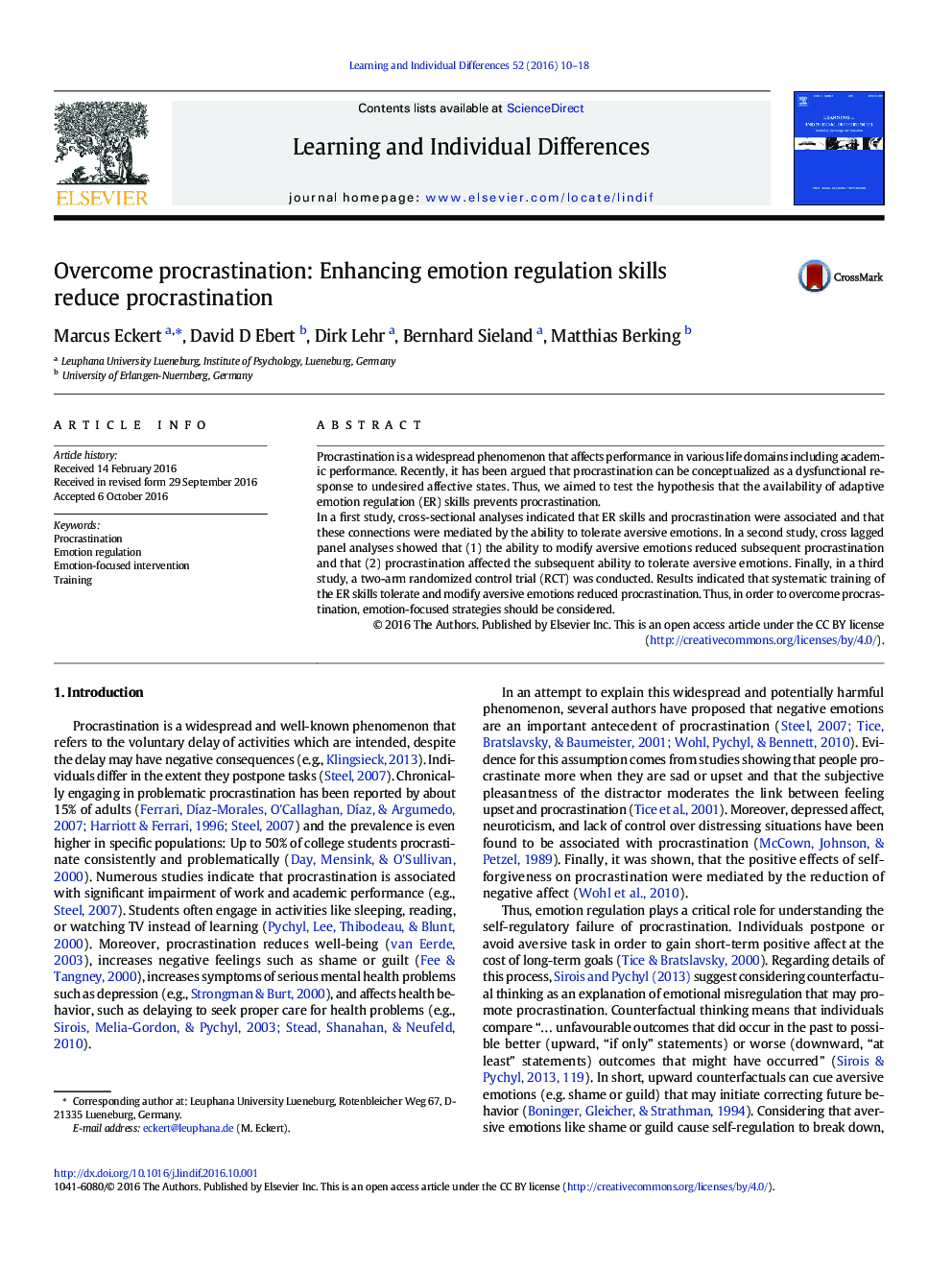| Article ID | Journal | Published Year | Pages | File Type |
|---|---|---|---|---|
| 4940063 | Learning and Individual Differences | 2016 | 9 Pages |
â¢Emotions regulation skills reduce subsequent procrastination.â¢Clarify key roles of the ER abilities tolerate aversive emotions and modify aversive emotions.â¢In order to investigate effects of emotion-focused strategies on procrastination, a RCT was conducted.â¢Training of emotion-focused strategies decreases procrastination.
Procrastination is a widespread phenomenon that affects performance in various life domains including academic performance. Recently, it has been argued that procrastination can be conceptualized as a dysfunctional response to undesired affective states. Thus, we aimed to test the hypothesis that the availability of adaptive emotion regulation (ER) skills prevents procrastination.In a first study, cross-sectional analyses indicated that ER skills and procrastination were associated and that these connections were mediated by the ability to tolerate aversive emotions. In a second study, cross lagged panel analyses showed that (1) the ability to modify aversive emotions reduced subsequent procrastination and that (2) procrastination affected the subsequent ability to tolerate aversive emotions. Finally, in a third study, a two-arm randomized control trial (RCT) was conducted. Results indicated that systematic training of the ER skills tolerate and modify aversive emotions reduced procrastination. Thus, in order to overcome procrastination, emotion-focused strategies should be considered.
